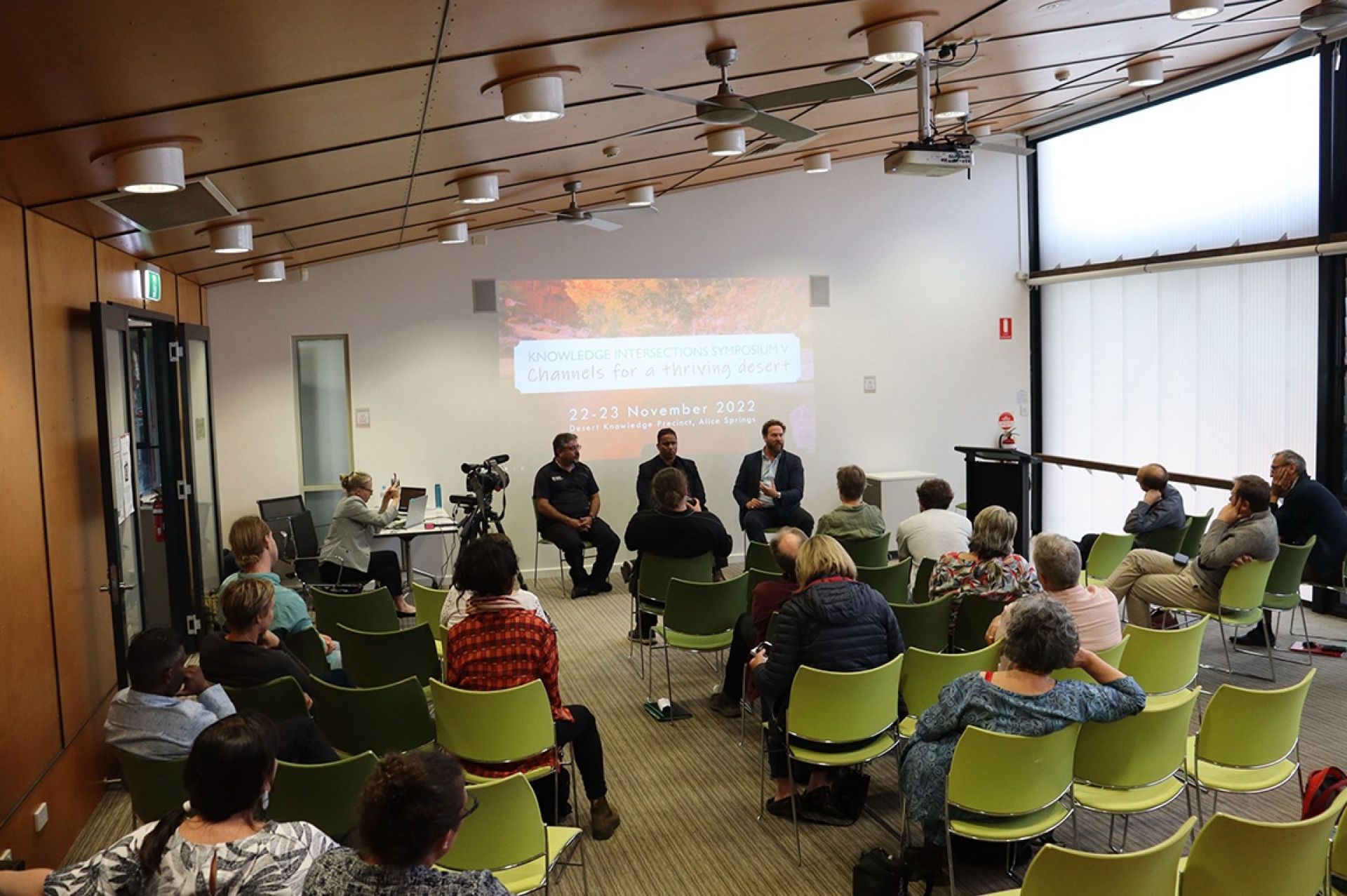
The fifth Knowledge Intersections Symposium (KIS), held on 22-23 November 2022, brought together researchers, students, and local organisations to exchange knowledge in support of learnings and developments for Central Australia.
Underscoring the theme ‘Channels for a thriving desert’, the event cast a light on Central Australian projects and on the communities, landscapes and businesses of the region. Participants heard about work in education, arts, language, health, enterprise and more, with speakers coming from across the Northern Territory and all around Australia to share their expertise.
The event was jointly organised by the Desert Knowledge Research Institute, Batchelor Institute and Charles Darwin University (CDU), and held at the Desert Knowledge Precinct in Alice Springs, with both the event program and presenters’ abstracts available online.
In particular, a collaborative effort from organisers Dr Judith Lovell, Assoc Prof Kathryn Gilbey and Assoc Prof John Guenther of Batchelor Institute, Jeanette Elliot from Desert Knowledge Australia (DKA), and Dr Felicity McLure from CDU realised the overall event.
The first day of KIS included sessions on publishing, language learning, policy making, research practices, and culture and identity. The second day saw three parallel streams of sessions, giving participants a wide variety of topics to choose from, ranging from primary healthcare access to bilingual education, language resources, creative skills, renewable energy and water resources.
Batchelor Institute was represented in a number of sessions, such as a discussion of the master-apprentice language learning method with Assoc Prof Gilbey, Vanessa Farrelly, Samantha Armstrong and colleagues. Assoc Prof Guenther contributed to ‘Local Decision Making in Four Warlpiri Schools’, while Dr Lovell discussed ‘Pathways: Communication as Creative Skill and Cultural Expertise’ along with Ruth Katakarinja and Ruby Kunoth-Monks, and Angela Harrison introduced the popular book Ngulajuku! Tiger’s story of how Nyirrpi came to be.
A session titled ‘KIS Partnership’ featured leaders from Batchelor Institute, DKA and CDU, again highlighting the key partnerships and collaborations that make the annual symposium possible.
Across the two days, the symposium provided a forum for Central Australian researchers and enterprises to unpack the theme of a thriving desert through vibrant and engaging discussions.
The sixth symposium is slated for October 2023 in Alice Springs.
